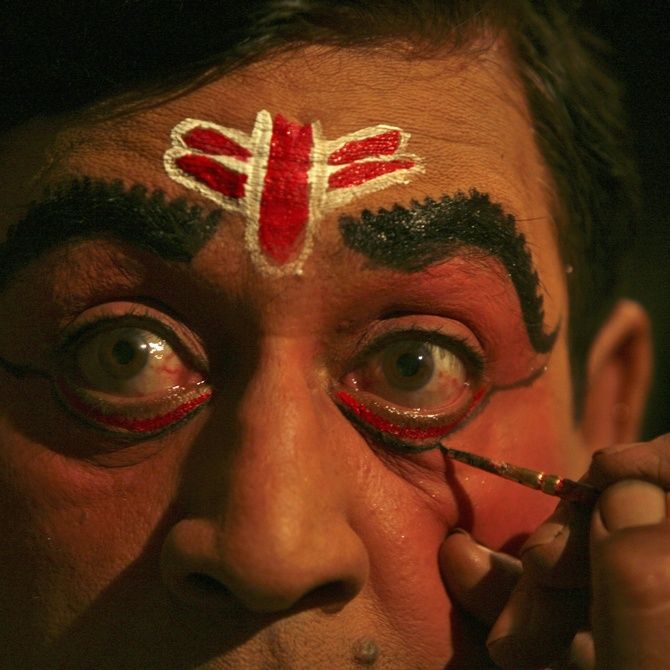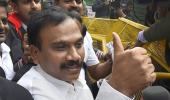'The only loser is the tax payer who doesn't have a clue as to how his money is being used.'

Asuras Of Antariksh is a fictional tale inspired by the 2G spectrum scam case that rocked the UPA-2 government and finally resulted in the cancellation of the deal.
It revolves around the deal was made, how it was camouflaged, how the powers that be investigated the scam, why the investigation was called off and how the files are now buried deep within the government labyrinth, never to see the light of day again.
The protagonist is S Raja, minister of information and technology, a member of a political party that has allied itself with the ruling party at the Centre, who allots spectrum on a first-come first-served basis.
Then there is a powerful son-in-law who specialises in converting agricultural and shared community land to commercial land and popular godmen who convert political black money into usable white money.
The book not only shines light on the webs of deceit and corruption that are now a part of our political system, it also shows how easy it is bury even the best expose in the world.
Here, both corruption -- and the exposing of that corruption -- is undertaken by ministers.
The characters in Asuras Of Antariksh -- both the ministers and the bureaucrats -- will seem familiar as they are reflections of the kind of people you see, and read about, every day.
Author Veena A Rao takes you through every step of the scam and the expose, but, at the end, Asuras Of Antariksh suddenly and unexpectedly fizzles out like a freshly opened bottle of soda -- lots of noise, some bubbles and then, absolute silence.
The reader is left bewildered as he sees everybody escaping scot free.
Veena S Rao spoke to A Ganesh Nadar/Rediff.com about Asuras Of Antariksh.
There were characters in Asuras Of Antariksh who reminded me of A Raja (the minister accused and later exonerated in the 2G scam), Robert Vadra and Baba Ramdev. Was this deliberate?
Asuras of Antariksh is a work of fiction.
I took some traits and anecdotes from different people and create my own characters.
They are open to the reader's interpretation.
You may find my characters similar to the people we meet every day.
I presumed Vinod Rai exposed the 2G scam, but your book says something else.
My book is a work of fiction.
A contract was exposed and cancelled; this is in the public domain. The rest is intelligent imagination.
According to your book the Antrix-Devas case was brought into the limelight by the alleged 2G scamsters. Is that what actually happened?
If you remember the sequence of events and what I read in both Business Line and The Economic Times, it is possible.
So, to provide the required pace, I dressed it up with semi-truths and the same imagery I spoke to you about earlier.
Truth is stranger than fiction. We have fiction and non-fiction writers, but you have tried to pass off non-fiction as fiction.
There are only three non-fictional events. A contract was signed. A contract was exposed. A contract was cancelled.
The rest, as I say is just intelligent imagination.
A mixture of selective facts from the public domain and imaginary events produces a fairly interesting cocktail!
In mythology, when the asuras become powerful, the devas are there to correct the balance. But your book has only villains.
This is a dispassionate narrative; there is no right or wrong.
Everybody is a hero in this novel as they all achieve their objectives and are successful in the end.
The only loser is the tax payer who doesn't have a clue as to how his money is being used.
After the heavy build up leading to the scam and then the revelations, the book fizzles out in the end.
That is symbolic of what happens when powerful people are involved in any case of corruption.
Going by your book, do you believe that money solves all problems in Kalyug?
What better exposition of Kalyug can there be?










